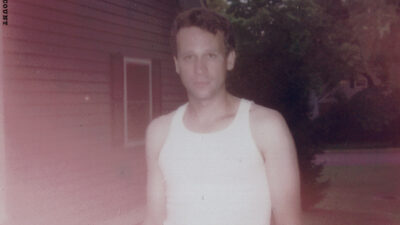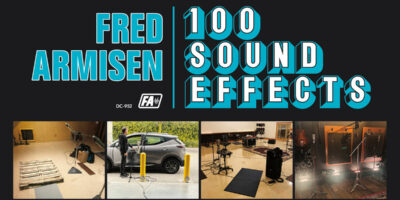Genre: Indie Folk
Favorite Tracks: “Service Road” “Exception to the Rule” “Chesapeake” “Big Black Heart” “My City”
It seems as though people will compare anyone with an acoustic guitar and less-than-placating vocals to Bob Dylan—Diffuser has even done a comprehensive list of 28 “contenders.” Honestly though, the notion of waiting for new iterations of self-established writers, most of whom hated the idea of boosting their own prowess, feels not only limiting but a little tiring. That being said, two artists being compared to Dylan of their own accord, Phoebe Bridgers and Connor Oberst, have joined forces to do something powerful. Dubbed “Better Oblivion Community Center,” the superduo released their surprise 10-song album in conjunction with a phone number and strange answering machine message. THE TIMES THEY ARE A-CHANGIN’, Dylan’s second album, also consisted of 10 tracks, and with songs like “North Country Blues” and “The Death of Hattie Carroll,” there seems to be an eerie similarity in both the narrative structure and the throughline of how draining life can feel.
Personal accolades aside, Better Oblivion Community Center have created one of the most interesting and completely dynamic albums to be released within the last several years. The composition may feel predictable, as it features frequent guitar solos, constant blowouts, and fervent drums, but all that in mind, it never loses sight of what it’s supposed to be: an immersive backdrop into complex thoughts. While some may feel it “overpowers” the vocals of two beloved songwriters, it feels instead integral to the emotion. No matter what, lyrics are the absolute star of the show, and no amount of theremin will supercede that. Besides, to only have their vocals would leave us with a Chuck Palahniuk novel and no reading light.
Lyrics seem to be be widely understood as the lynchpin for what can make music conventionally “deep,” or be innately escapist. Bridgers and Oberst are emblematic of that notion while also negating it at the same time. They go beyond observational songwriting and instead start relaying what feels like deeply personal memories that we have a brief glance into but only a semblance of an understanding of. Like THE TIMES THEY ARE A-CHANGIN’, there are only small breaks in between every track; they’ve subverted stream-of-consciousness and gone to organic thoughts and perceptions brazenly bouncing around their heads, completely unfiltered by a supposed superego. Tracks like “Chesapeake” have so many layers it’s hard to even process one before it’s over, and yet you can’t help but be mesmerized.
The most refreshing and completely ingenious tenant of Better Oblivion Community Center is the undeniable throughline of poignant helplessness. Their unguarded openness oozes from every lyric, every chord, and envelops the listener until they’re drowning in it; when you’re privy to two extremely close friends laughing over past experiences, you weren’t there to see this dumpster fire, and yet you kind of wish you were? Oberst, in the past, exuded a visceral vulnerability through blunt screams, while Bridgers was close to the diametric opposite, saying things matter of factly as if her innate pessimism is the only possible way to feel. This album is where the two meet and turn into the other. In “My City,” nothing is more cathartic to hear than Bridgers finally just screaming out all of those years of pent-up suppression. On “Service Road,” Oberst almost stops singing altogether to pointedly ask “Say what you mean, and say it now”: no bullshit, no niceties, just answer one question honestly.
Moreover, this album has been interesting to hear specifically in regards to Bridgers. After STRANGER IN THE ALPS, people had projected a very specific image of a white-haired waif from Pasadena that is always depressed. They would find anthems in her songs and chain her to this pedestal as the “arbiter of loneliness.” Yet, this is literally a woman whose name is _fake_nudes_ on Instagram, and has posted about always getting fingered improperly online. Not to say that online personas aren’t performative, but these past two albums have been a gentle reminder that Bridgers is a person. As someone who adores STRANGER IN THE ALPS, it makes me happy to know that she is a complex individual, and that her solo albums, while deeply personal, are only one facet.
BETTER OBLIVION COMMUNITY CENTER is an irrefutable and nomadic album. There’s very little relatability to the lyrics themselves, and when they are approachable, it’s a small glimmer. The album’s last track, “Dominos,” talks simply about leaving, packing up to the next venture. But this is Bridgers and Oberst next venture, which includes an inescapable fear of oneself on another unfortunate night, in a different motel. The album’s most relatable line remains “I’m sure as hell my breath stinks”, which is actually the only bit of humanity you really need. Much like the end of Dylan’s THE TIMES THEY ARE A-CHANGIN’, with “Restless Farewell’s” most relatable lyric “To stay friends, you need time to make amends,” both tracks remind us that there is something completely magnetizing about listening to two people (or even one person) just talk about themselves; the memories relayed aren’t always fond, but they’re undoubtedly warm, close, as if it’s the only hand to hold they’ve ever had. Our resident “Bob Dylans,” Connor Oberst and Phoebe Bridgers are making magic—even if it’s an album that will take a while to find solace in, we’ve got time, and so do they.















Comments